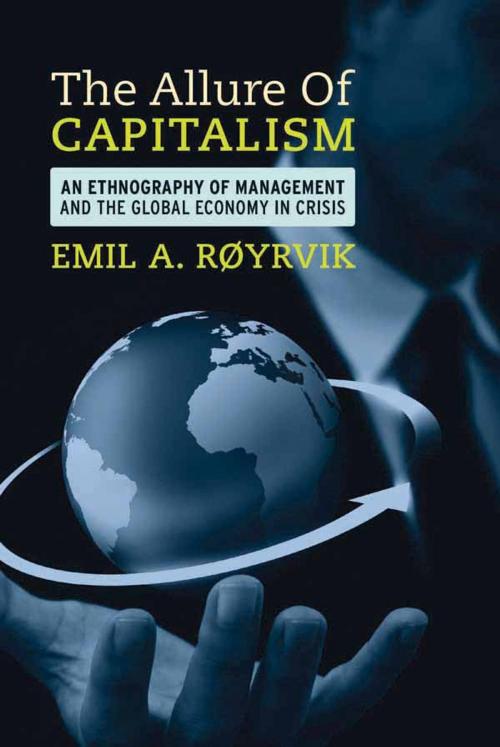The Allure of Capitalism
An Ethnography of Management and the Global Economy in Crisis
Business & Finance, Economics, International, Nonfiction, Social & Cultural Studies, Political Science, Politics, Economic Conditions, Social Science, Anthropology| Author: | Emil A. Røyrvik | ISBN: | 9780857451866 |
| Publisher: | Berghahn Books | Publication: | September 1, 2011 |
| Imprint: | Berghahn Books | Language: | English |
| Author: | Emil A. Røyrvik |
| ISBN: | 9780857451866 |
| Publisher: | Berghahn Books |
| Publication: | September 1, 2011 |
| Imprint: | Berghahn Books |
| Language: | English |
The “managerial revolution,” or the rise of management as a distinct and vital group in industrial society, might be identified as a major development of the modernization processes, similar to the scientific and industrial revolutions. Studying “transnational” or “global” corporate management at the post-millennium moment provides a suitable focal point from which to investigate globalized (post)modernity and capitalism especially, and as such this book offers an anthropology of global capitalism at its moment of crisis. This study provides ethnographically rich descriptions of managerial practices in a set of international corporate investment projects. Drawing also on historical and statistical data, it renders a comprehensive perspective on management, corporations, and capitalism in the late modern globalized economy. Cross-disciplinary in outlook, the book spans the fields of organization, business, and management, and asserts that now, in this period of financial crisis, is the time for anthropology to yet again engage with political economy.
The “managerial revolution,” or the rise of management as a distinct and vital group in industrial society, might be identified as a major development of the modernization processes, similar to the scientific and industrial revolutions. Studying “transnational” or “global” corporate management at the post-millennium moment provides a suitable focal point from which to investigate globalized (post)modernity and capitalism especially, and as such this book offers an anthropology of global capitalism at its moment of crisis. This study provides ethnographically rich descriptions of managerial practices in a set of international corporate investment projects. Drawing also on historical and statistical data, it renders a comprehensive perspective on management, corporations, and capitalism in the late modern globalized economy. Cross-disciplinary in outlook, the book spans the fields of organization, business, and management, and asserts that now, in this period of financial crisis, is the time for anthropology to yet again engage with political economy.















